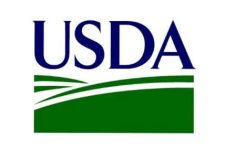By Kansas Attorney General Derek Schmidt
This week – the first full week of March – we observe National Consumer Protection Week. While our office focuses year-round on protecting consumers from scams and rip-offs, this week in particular we remind Kansans to be diligent in keeping themselves safe.
It is also one of our customs this week to report to you some of the most common scams our office received complaints about over the past year. These scams have been around for years and yet we hear complaints about each of these nearly every day. So, stay on the lookout for these ways the crooks are trying to get a hold of your money:
IRS/Government Imposter. This scam tops our list for the second year in a row. Although federal authorities have been successful in shutting down some operators of this scam, the U.S. Treasury Department reports more than 10,000 calls are still made per week and over the last two years, victims have lost a reported $15 Million. The scam usually involves a scammer impersonating the IRS saying you owe taxes and needing you to pay immediately via your credit card or by purchasing a pre-paid debit card and calling them back with the card number. Other variations we’ve seen in Kansas include scammers calling saying you’ve missed jury duty and need to pay a fine. We’ve even had scammers call impersonating the attorney general’s office saying they were going to come arrest you if you don’t pay a fine immediately. Remember, when you owe money to a government agency, they are going to send you notices by mail. If you do get something in the mail, it’s a good idea to look up that agency’s number in the blue pages of a phone book or on the agency’s official website and call to make sure it’s a legitimate letter.
Computer Repairs. In this scam, the caller claims to be from a well-known computer company telling you they’ve detected a virus on your computer and offers to help you remove it by connecting remotely to your computer. The irony here is that the scam artist is actually trying to install a virus on your computer to give them access to all your files and your personal information that is in them. The scammer may also be trying to hack into your machine to send out spam emails from your account. We’ve also seen an increase in hackers trying to take over your computer’s camera and microphone to spy on you and try to obtain additional personal information. If your computer really does have a problem, take it to a reputable, local computer repair shop or call your computer manufacturer’s customer service number directly. Never give a stranger access to your computer over the phone.
Social Media Scams. As we use social media more and more in our daily lives, the scammers have also began using these platforms to try to take your money. While this can take many forms, some of the most common example we’ve seen is sales through social media, including Facebook, Craigslist and Ebay that turn out to be fraudulent. When buying online sites, be sure the check the seller’s reviews, returns and refund policy and only use secure payment methods such as a personal credit card. Never wire someone money for purchases made online.
Lottery Scams. This age-old scam still hasn’t gone away. Whether it’s a foreign lottery or a government grant, scammers are still luring people to send money with the promise of a future “prize,” if only they will send in the money to pay for the taxes or processing fees now. We always remind consumers that the Kansas Lottery is the only legitimate, legally operating lottery in Kansas, and you should never have to pay money upfront to claim a prize.
Debt Collection. Like the IRS scams, this involves a scammer calling trying to get you to pay for something you do not owe. If you think you might owe the debt the collector is calling about, ask them to send you written proof of the debt by mail. Never give in to high-pressure telephone tactics or give the collector access to your bank account or credit card over the phone.
More information on how to protect yourself from these and other scams is available on our consumer protection website at www.InYourCornerKansas.org or by calling our consumer protection hotline at (800) 432-2310.



